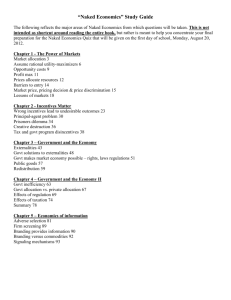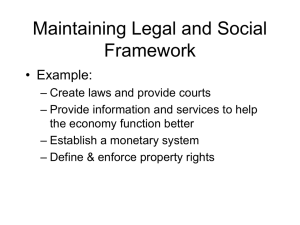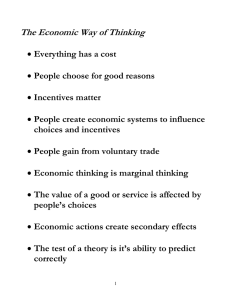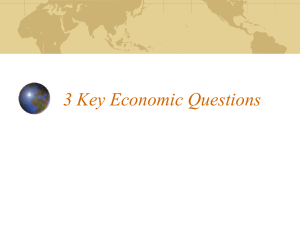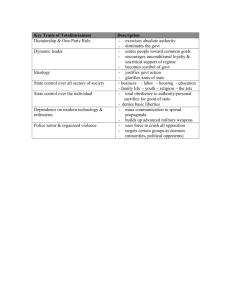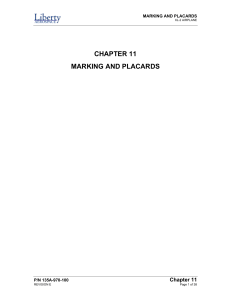Government and the Economy Economics Chapter 11
advertisement
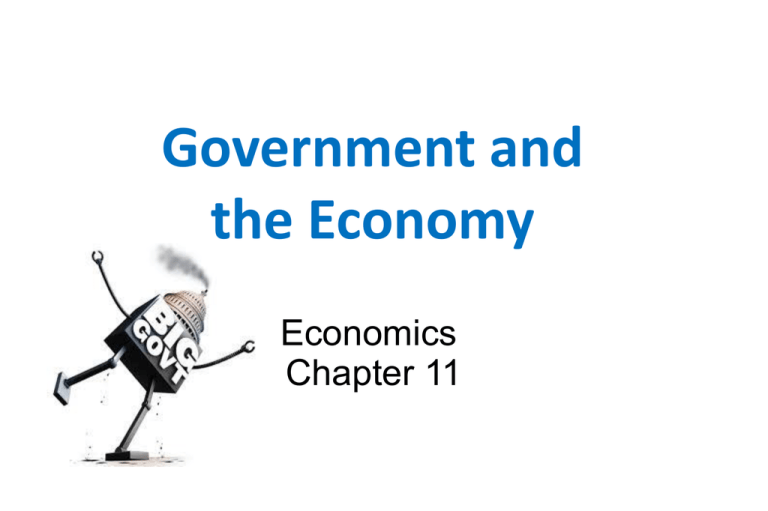
Government and the Economy Economics Chapter 11 In class today: • CBM #5 (Chapters 11 and 12) • Score and graph it • Get out your charts that you filled in last class after the Unit II test (Chapter 11: Govt and the Economy) • Check your answers from the power point, fill in remaining info to complete them • In class activity – Analyze political cartoons placards A-G, use 1 Role of Govt from your chart for each Placard analysis! Economic powers of the US Government Article 1: US Constitution gives government the following powers: To levy and collect taxes Provide for the general welfare Borrow money Regulate interstate and foreign commerce Establish bankruptcy laws Coin money and regulate value Fix the standards of weights and measures Protect inventors and authors works Exercising these powers is called regulation Protecting Property Rights What is Private Property? Land Personal possessions Physical Assets Intellectual Property Protecting private property = key to free enterprise, because incentives (to own and develop) matter Examples: Courts, Police, Patent and Trademark Office Eminent Domain • An EXCEPTION to property rights = Eminent domain: Government right to seize property for public use • Must fairly compensate owner • 5th Amendment – guarantee due process and just compensation • Kelso v. City of New London – Supreme Court agreed that City of New London could seize property for economic development Maintaining Competition • Government prohibits practices that: – Restrict competition in the marketplace • Price fixing • Bid rigging • Market division – Form monopolies • Government also monitors mergers (joining of 2 firms into 1) • Examples: Justice Department & Regulatory Agencies Protecting Consumers, Savers, and Investors • Caveat Emptor – “Buyer beware” • Government provides information about products and ensures goods and services are safe • Examples: – Consumer Product Safety Commission – FDIC – FDA Protecting Workers • Safeguard the interests of workers • Protect physical well-being • Examples: – Department of Labor – OSHA Addressing Externalities • Positive or negative spillover effects from production or consumption • Govt can support positive externalities – Examples • providing for education • Immunization programs • Limit negative externalities – Examples • EPA policies to control pollution • Incentives • Tolls, taxes, quotas Providing Public Goods • Providing goods and services to the community for free • Examples – National defense – Street lights – Highways, dams, bridges Promoting Economic Stability • After the stock market crash of 1929, the US government has played an increasing role in regulating the economy to prevent booms and busts • Examples: – Maintaining dollar value – Stimulating business activity (incentives, stimulus) Redistributing Income • US Census Bureau charts the distribution of income in the US • Also calculates the poverty rate = % of households below poverty threshold • Examples of income redistribution: – Welfare payments, food stamps, public housing, school lunches, Medicaid Is Regulation Always Good? • Over regulation – detail make doing business unmanageable • Regulation needs to balance costs & benefits • Examples??? Deregulation • Removes restrictions on economic activity – Banking – Airlines – Cable TV – Electricity – Trucking • Industry becomes more competitive – Weaker companies fail or merge – Strong companies survive Class Activity • Using your chart of Role of Government in the Economy • In pairs, study and rotate placards A-G • Fill in handout “Analyzing Political Cartoons About the Role of Government” • Each Placard represents ONE of the 8 Roles on your chart. Use each one only ONCE!
